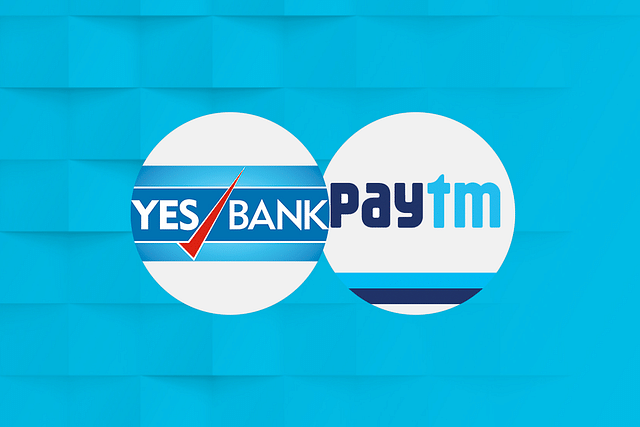
Yes Bank Stake Sale To Paytm: What Digital Payment Giant’s Interest In The Embattled Bank Means
Will Paytm turn out to be the knight in shining armour for the embattled bank?
Digital payments giant Paytm is reportedly in talks with Yes Bank co-founder Rana Kapoor to buy his 9.6 per cent stake in the bank. The discussions for the stake sale - valued at Rs 2,000 crore are said to be in the preliminary stage.
Background
Kapoor was dramatically asked to step down as MD and CEO by the RBI in September 2018 over governance and regulatory issues following charges of not classifying loans as non-performing.
While Kapoor had initially vowed never to sell his shares and pass them on to his family, he now appears to have had a change of heart.
Yes Bank’s Woes
Besides the impact of Kapoor’s exit, the bank has been reeling under asset quality deterioration. Its troubles began in March 2016, when it disclosed that its non performing loans stood at $743 million as opposed to the earlier believed figure of $132 million.
Now analysts have claimed that, Yes Bank needs additional funds to the tune of Rs 4,000 crore to kick start a credit growth and overcome its liquidity crisis. Rating agency Moody’s had downgraded Yes Bank’s long-term foreign currency issuer rating last month.
Back in June, Yes Bank’s CEO had announced that the bank planned to raise $1.2 billion over the next 18 months via sale of private and public shares.
It though remains to be seen if Paytm turns out to be this knight in the shining armour which the bank is looking for.
New Avenues For Paytm
Founded in 2010, Paytm had the first movers advantage in India’s digital revolution and till date remains the most well known digital payment brand.
While it still boasts of a 70 per cent share in online and offline digital payments, it has struggled to surf on the rising wave of Unified Payments Interface (UPI) transactions.
UPI’s current share in India’s total monetary transactions stands at 17 per cent which is expected to rise to 59 per cent by FY25. As per July figures, Paytm stands as a distant third in the UPI standings with a share of 16 per cent, far behind the market leaders in Google Pay and PhonePe who command over 35 per cent share each.
Picking up equity in Yes Bank will give it access to mainstream banking which still command a total transaction share of 83 per cent.
Not Just A Digital Payment Merchant
Paytm has been actively diversifying from its core digital payment business for some time now. It received a payment banking license from the RBI in August 2015. Paytm’s parent company One97 Communications holds a minority stake of 39 per cent in the payments bank.
Paytm recently also entered the lending business by partnering with non-banking financial company Clix Finance to offer loans to merchants and customers.
Can Paytm Afford A Shopping Spree?
While Paytm pushes to enter the mainstream banking sphere, its balance sheet might be staring at it with wary eyes as it reported a net loss Rs 3,959.6 crore in FY19 against Rs 1,490 crore a year ago, a rise of over 165 per cent. The standalone revenue on the other hand rose by a partly 2.8 per cent to Rs 3,319 crore.
Paytm attributes this rise in loss to business expansion and higher brand building expenses which rose from Rs 4,864.53 crore to Rs 7,730.14 crore. Is is expected to report is first profit of Rs 207.61 crore in 2021. It is currently valued at $15 billion.